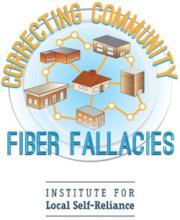AT&T, Comcast, Lies Hurt Homeowners
As of this January, the FCC defines broadband as 25 Mbps downstream and 3 Mbps upstream, but in some rural areas in the United States, people are still struggling to access DSL speeds of 768 kbps. In a few extreme cases, individuals who rely on the Internet for their jobs and livelihoods have been denied access completely.
The sad state of affairs for many Americans who subscribe to the major Internet service providers like AT&T and CenturyLink was recently chronicled in an article on Ars Technica that examined AT&T’s stunning combination of poor customer service, insufficient infrastructure, and empty promises to subscribers. It tells the unfortunately common story of the little guy being systematically overlooked by a massive corporation focused solely on short-term profit maximization.
Mark Lewis of Winterville, Georgia, and Matthew Abernathy of Smyrna, Tennessee, are two examples of AT&T subscribers who, upon moving into new homes, found that not only were they unable to access basic DSL speeds, but that they had no Internet access whatsoever. Alternatively citing a lack of DSL ports and insufficient bandwidth, AT&T failed to provide Lewis Internet access over the course of nearly two years. As for Abernathy, the corporation strung him along for 9 months without providing DSL, forcing him and his wife to rely on a much more expensive Verizon cellular network to go online.


